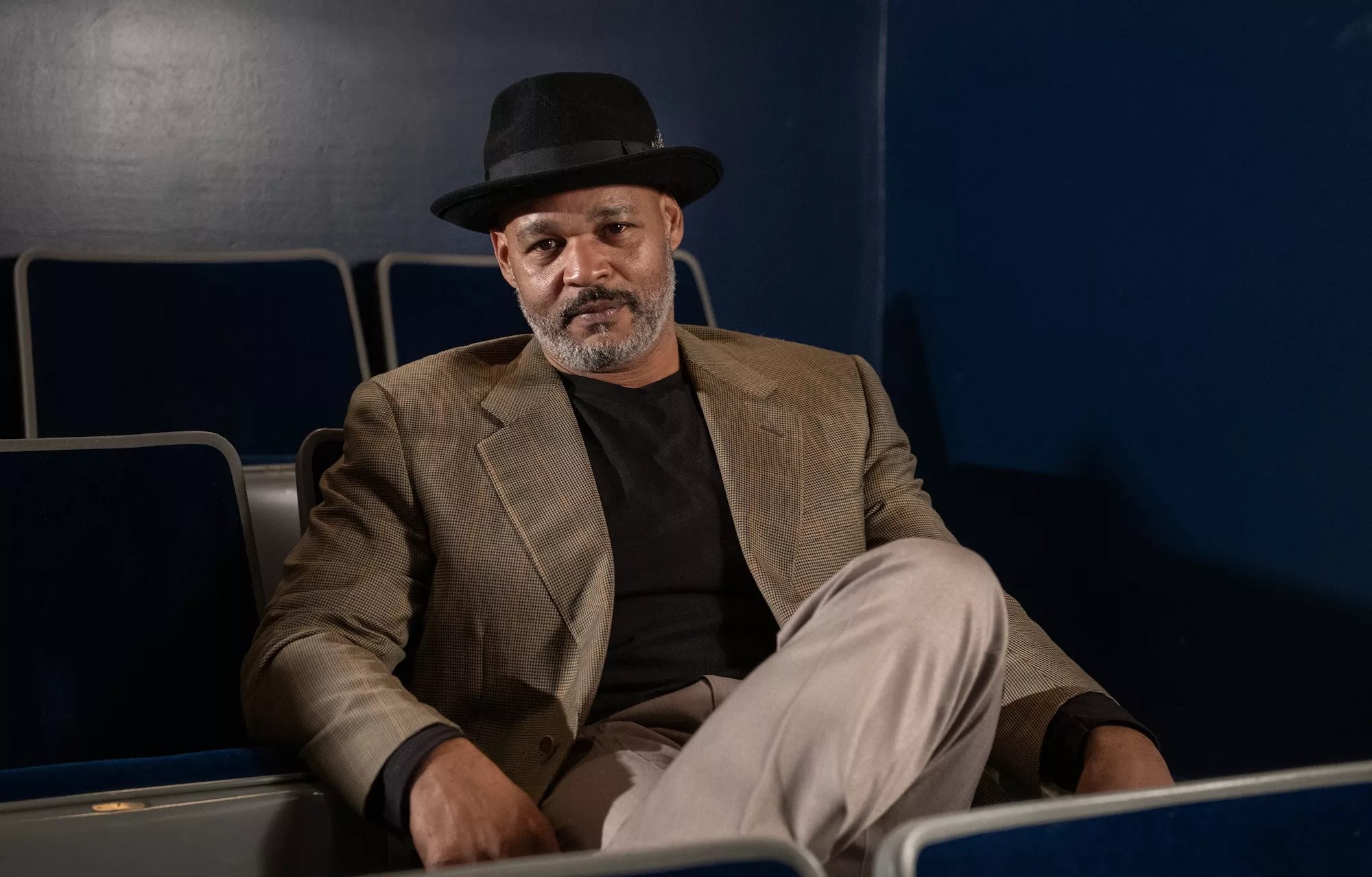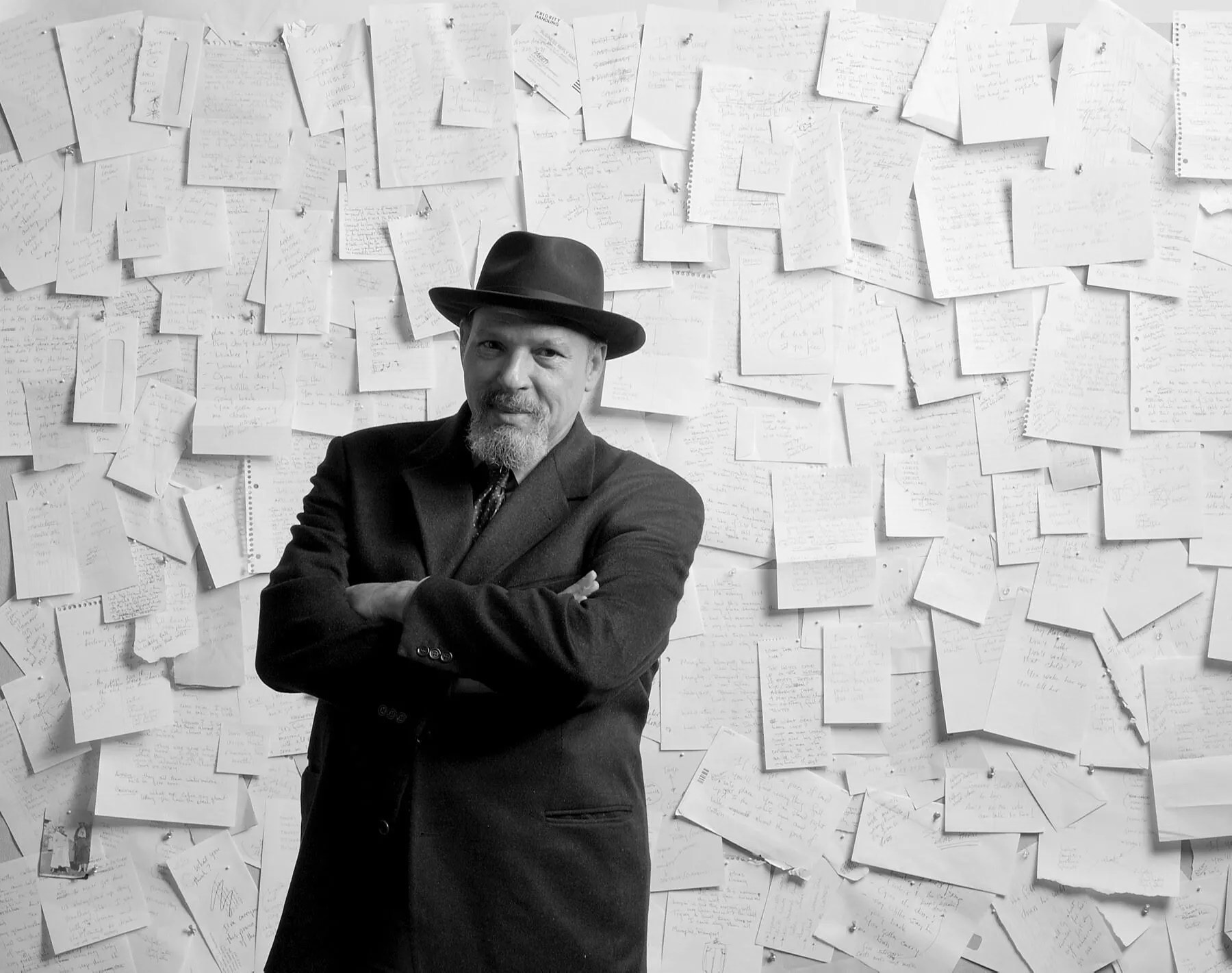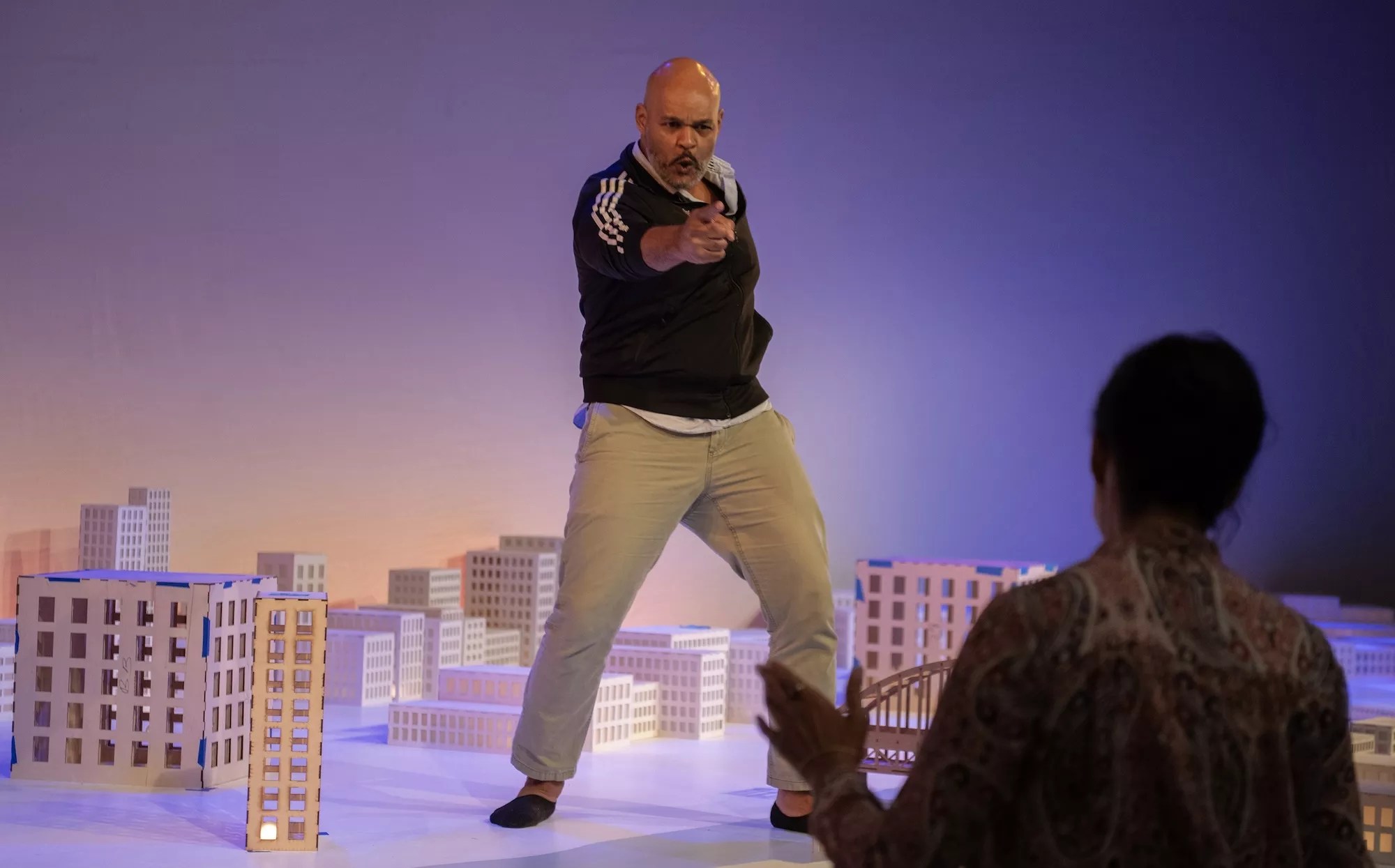
Photo by Magnus Stark

Audio By Carbonatix
Few people – maybe least of all the late and indisputably great August Wilson – could have foreseen the future he built for himself, word by word.
A tenth-grade high school dropout, he was a brilliant and bullied mixed-race kid who grew up in Pittsburgh’s Hill District, an area with a mostly Black population. Keeping his dropout status secret from his mother, who had such faith in him, he became an autodidact, leaving home during school hours to devour hundreds of books at the city’s majestic Carnegie Library.
The fourth of six children born to Daisy Wilson, an African-American North Carolina native whose family was part of the Great Migration from south to north, and Frederick August Kittel Sr., a white German immigrant baker, the budding writer absorbed the sights and sounds of the Hill District, where family, neighbors, friends and the artists created a rich cultural stew in the mid-20th Century.
The environment, the people, and the Carnegie Library became his university. And from that creative crucible, a world-class playwright emerged.
Born Frederick August Kittel Jr., he wrote as August Wilson, honoring his adoring mother and distancing himself from his mostly absent father, a heavy drinker with an explosive temper.
Wilson, who died of liver cancer at 60 in 2005, poured his immense creativity, vivid memory, and peerless ear for the vernacular of the Hill District into a towering achievement: ten plays about the lives of African Americans, each set in a different decade of the 20th Century. First called the Century Cycle, now known as the Pittsburgh Cycle, all ten were produced on Broadway. Two of them – Fences and The Piano Lesson – won a Pulitzer Prize for drama.
In 2003, one of the country’s greatest playwrights pulled back the curtain on his formative years in the solo show How I Learned What I Learned. It was co-conceived by Wilson and director Todd Kreidler, written by Wilson, and performed by him in its world premiere at Seattle Repertory Theatre.
The play has been performed in regional theaters around the country, often by actors like Ruben Santiago-Hudson and Eugene Lee, performers who had a history with Wilson’s work. Now, GableStage started its 2023-2024 season with a new production of How I Learned What I Learned, starring Melvin Huffnagle as Wilson.

Playwright August Wilson wrote ten plays about Black life in 20th-century America — and one about himself.
August Wilson Legacy LLC photo
In this personal piece, Wilson’s voice – the way he expressed wisdom, tradition, spirit, history, outrage, joy, and humor – shows clearly from whom the characters in the Pittsburgh Cycle got their mojo. If you know the plays, you’ll gain an understanding of what shaped the man who created them.
But even if you’ve never seen Gem of the Ocean, Joe Turner’s Come and Gone, Ma Rainey’s Black Bottom, The Piano Lesson, Seven Guitars, Fences, Two Trains Running, Jitney, King Hedley II, or Radio Golf, the play How I Learned What I Learned provides an irresistible peek into the forging of an artist.
“I’ve loved this show for a very long time, then discovered it had never been done in Miami,” says Bari Newport, GableStage’s producing artistic director. “It celebrates the creative spirit we all have inside of us. The act of creation is godly. This has interesting metaphorical elements and autobiographical information. I’m interested in plays that celebrate Black joy and being a Black artist.”
Newport is directing two of her company’s plays this season, Larissa FastHorse’s comedy The Thanksgiving Play November 17-December 19 (“Four well-meaning people are trying to tell an authentic version of the Thanksgiving story, which is hard without an indigenous person involved,” Newport says) and Ben Power’s adaptation of Stefano Massini’s The Lehman Trilogy March 15-April 14. (“It’s actually a very simple piece, but the story is epic,” she says of the three-actor, three-hour-plus play spanning 164 years.)
To stage How I Learned What I Learned, Newport hired Carey Brianna Hart, a Miami actor, director, playwright, teacher, stage manager, and radio host who does a weekly show on the arts at 9:30 a.m. Saturdays on WMBM-AM 1490. Hart has worked at numerous South Florida companies, including M Ensemble, a Black company that is the region’s oldest continuously producing professional theater.
There, Hart worked onstage and behind the scenes on a number of the Pittsburgh Cycle plays; M Ensemble is the only local company to have produced all ten, some more than once. (A new production of Joe Turner’s Come and Gone will play at Miami’s Sandrell Rivers Theater April 11-28.)
Hart remembers her ninth-grade class reading Ma Rainey’s Black Bottom, about temperamental real-life blues singer Gertrude “Ma” Rainey. Set in a Chicago recording studio in 1927, it’s the only play in Wilson’s cycle that doesn’t take place in Pittsburgh. The director particularly recalls the productions of Joe Turner’s Come and Gone and The Piano Lesson that she saw at Chicago’s Goodman Theatre when she was a student at DePaul University.
“Just seeing people like the ones I know represented onstage in such a wonderful manner, knowing those idiosyncrasies – it was tremendous,” she recalls.
Her subsequent work on multiple Wilson plays allowed her to appreciate the insight How I Learned What I Learned provides into the shaping of a masterful storyteller.
“It has a lot of concepts from his life that he used in all of his plays – him experiencing these circumstances, these people, how they resonated and caused him to create art. This background could have caused him to lash out. But it created a lexicon for his plays,” says Hart.

Actor Melvin Huffnagle as playwright August Wilson responds to direction by Carey Brianna Hart.
Photo by Magnus Stark
Huffnagle, whose most recent performance in a Wilson play was as the fiery diner owner Memphis in M Ensemble’s Two Trains Running in May, moved to Miami from New York two years ago to become an assistant professor of acting in Florida International University’s Department of Theatre.
In New York, he appeared in numerous plays by Layon Gray, another M Ensemble favorite, whose work brings stories from Black history to vibrant life. (This season, Gray will stage the February 8-25 regional premiere of The Girls of Summer, his play about a Black all-female baseball team in 1945.)
Regarding Wilson, Huffnagle’s knowledge of and appreciation for the revered playwright’s work runs deep.
“I went to grad school at the University of Florida and played Herald Loomis in Joe Turner’s Come and Gone – my favorite August Wilson play. I did my master of fine arts dissertation on it,” Huffnagle says of the play, set in 1911, as Black men and women struggled to forge new lives in a nation forever stained by slavery.
Beyond Wilson’s ingenious notion of crafting ten related plays that delve so deeply into a century of Black life in America, his distinctive writing and storytelling are what propelled him into the company of the country’s most revered playwrights, including Eugene O’Neill, Tennessee Williams, and Arthur Miller – whose work he hadn’t read or seen at the time he began his devoting himself to writing plays.
Wilson, whose first dream was to become a poet, writes in a naturalistic yet poetic style, almost musical. The monologues he gives his characters may be meaty, but they soar like arias.
“He put real Black people, Black lives, and their circumstances onstage. How he created these characters and their stories is poignant, important, and necessary. As an artist, you crave and look for that,” says Huffnagle.
Huffnagle says he is not trying to imitate Wilson’s voice, though he has watched videos of the late playwright.
“The trap could be if you weren’t very good at it. His spirit is in the words – you don’t have to embody him,” says the actor.
Huffnagle has been working with Hart at a frenzied pace since he and actor Robert Strain swapped performer and understudy roles. (After a recent family loss, Strain will perform at select matinees.)
Beyond learning all the words in a 47-page script, Huffnagle has to navigate the production’s unusual, evocative set. Designer Frank J Oliva, lighting designer Ernesto Pinto, and projection designer Joel Zishuk have brought the Hill District of Wilson’s youth back to life with scale-model buildings and bridges that light up when he’s talking about something that happened in a particular place.
Threading through those small streets might give some actors pause. Not Huffnagle.
“The set actually helps me remember my lines,” he says. “August is revisiting this place where he lived. And he’s the giant now.”
– Christine Dolen, ArtburstMiami.com
How I Learned What I Learned. Through October 22, at GableStage, 1200 Anastasia Ave., Coral Gables; 305-445-1119; gablestage.org. Tickets cost $35 to $65.